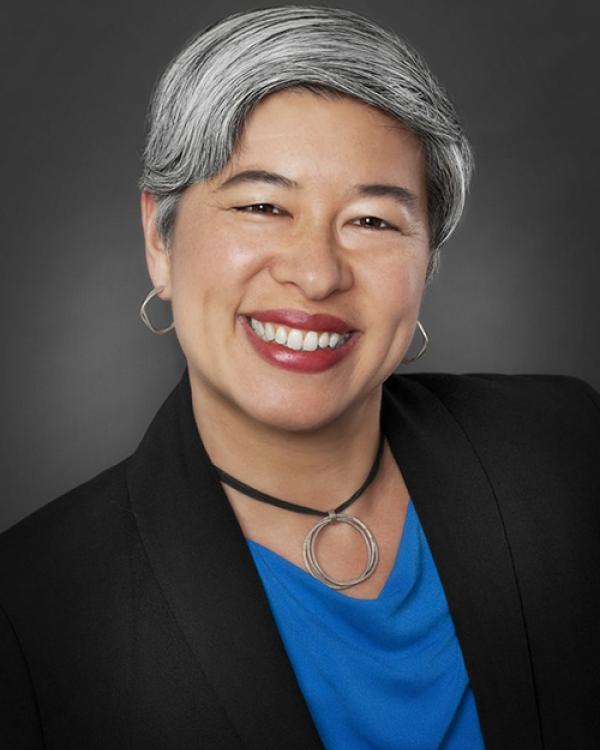
In her new book, Gevirtz School Professor Tania Israel challenges her readers to engage in respectful dialogue across the political divide--a much needed call to conversation.
A few months shy of the 2020 election, Tania Israel, a professor in the Gevirtz School’s Department of Counseling, Clinical, and School Psychology, has published Beyond Your Bubble: How to Connect Across the Political Divide, Skills and Strategies for Conversations That Work (APA 2020). It is a practical, politically neutral book that offers concrete skills for holding meaningful conversations that cut across today’s intense political divide, showing readers how to connect to the people in their lives.
Although Israel’s scholarship over the past twenty years has focused on interventions to support LGBTQ+ individuals and communities, she sees a direct connection between the topics discussed in her book and her ongoing research at the Gevirtz School. “My work has put me into the middle of difficult dialogue and in the middle of conflict,” she said during a recent conversation. “All of that has really helped me hone my understanding and skills related to dialogue across divides.”
In fact, many of the ideas in the book and the humorously titled diagram, “The Flowchart That Will Resolve All Political Conflict in Our Country,” came out of work conducted during a graduate course she was teaching on social justice in counseling psychology. Following the 2016 election, the class dedicated themselves to working on developing tools that would be helpful to promoting social justice in that current situation. She also credits her experiences teaching an undergraduate “Helping Skills” course for helping her appreciate one of the most important and useful tools discussed in the book: listening skills.
Yet when faced with the realities of a never-ending pandemic, a climate crisis, and the insidious effects of racism and white supremacy in our country, the act of listening to those who hold differing political views can feel unimaginable.
“There are so many high stakes issues and policies that we are dealing with right now, but also at stake in the political context are our relationships,” she emphasized. “Maintaining our relationships with family and with friends and community is so important to our well being. No matter what is going on in our country and our world politically, it’s important that we have these skills to be able to maintain our human connection to other people.”
In Beyond Your Bubble, Israel reminds us that maintaining relationships and engaging in dialogue doesn’t mean that we have to compromise our values. “We can still hold very strong and even extreme opinions and we can also be interested in and respectful of where other people are coming from,” she asserts. “Approaching these conversations and approaching other people with genuine curiosity is one of the best things we can do.”
Right now, it can be hard to find examples of respectful dialogue amidst the barrage of arguing pundits on cable news, nonstop commentary on social media, and the exhausting dysfunction on display at the highest levels of our government. But these are the wrong places to start. We have to go back to the basics. “The tools that I offer are about how we actually connect with other people face to face, not Facebook to Facebook,” she points out. “This is not about what elected officials are doing or people who are in the public eye. Most of us are not those people. Most of the people in this country and in this world are just people who have views and values and relationships with other people. I want to help people to navigate that. I think that’s a really important part of our social fabric.”
In spite of everything we’re up against, Israel remains optimistic about bridging the political divide. She says, “What I’m hearing from people who have come to the workshop [on which the book was based] or read the book is that even just learning the skills, gaining greater insight into the process and where other people might be coming from is helping their emotional state.”
So with Beyond Your Bubble in hand, pick up the phone and call your aunt in Connecticut. Have a socially-distanced chat with your neighbor across the street. Ask your friend why they believe what they believe. We will all be better for it.